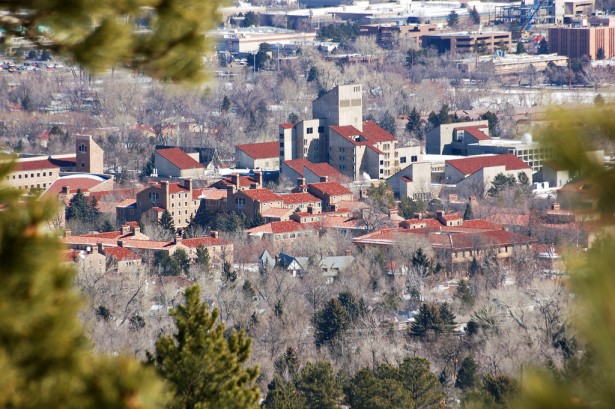Sierra magazine has just released its third annual list of what it calls “the most eco-enlightened U.S. colleges.” It ranks schools based on the results of a questionnaire sent to sustainability experts at hundreds of institutions across the country. Scores were assigned in eight categories: efficiency, energy, food, academics, purchasing, transportation, waste management, and administration. The rankings come at a time when two-thirds of college applicants say a school’s green record would influence their enrollment decision, according to a Princeton Review survey [PDF].
Below we’ve got the dish on Sierra‘s top 20 picks. (Schools that also made the Princeton Review’s “Green Honor Roll” are asterisked.)
Don’t see your college or alma mater on the list? Check out Sierra‘s full list of rankings for 135 colleges. And the College Sustainability Report Card evaluates the green cred of hundreds of U.S. and Canadian schools.
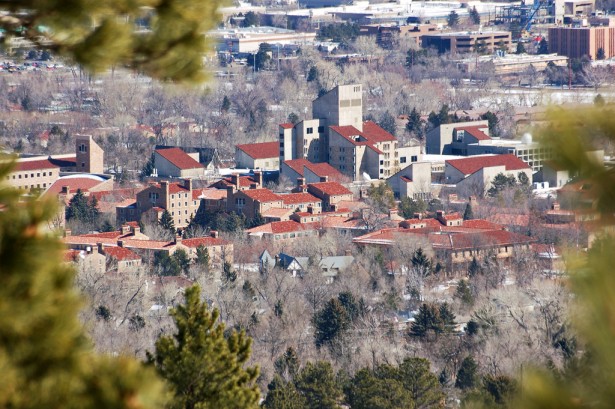 Photo: jiannone1. University of Colorado, Boulder
Photo: jiannone1. University of Colorado, Boulder
Known for its outdoorsy student body and scenic location at the foot of the Rocky Mountains, CU created the first student-directed recycling center in 1970, and in the decades since it’s made many other impressive green strides. The school provides plenty of alternative transportation for students to get around town or up to the ski slopes, all its new buildings must meet LEED Gold standards, and first-year students are provided with reusable shopping bags.
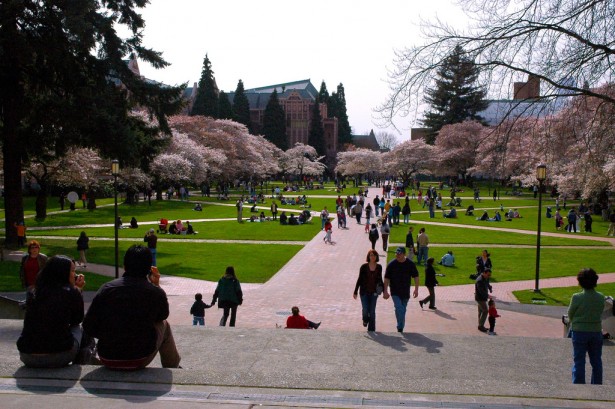 Photo: Wonderlane2. University of Washington, Seattle*
Photo: Wonderlane2. University of Washington, Seattle*
The UW holds new campus buildings to a LEED Silver standard, strives for a local, organic focus in its food services, and is currently the pilot site to test the first compostable paper soft drink cups.
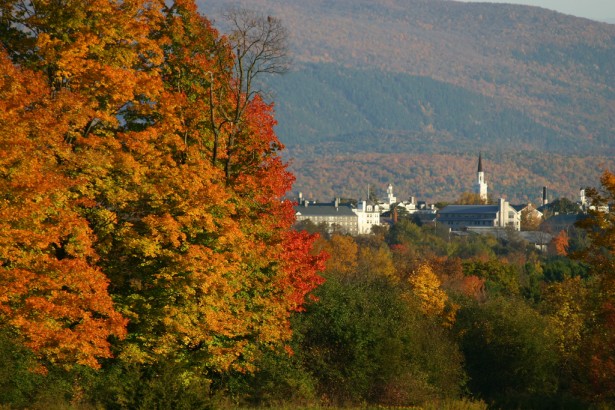 Photo: bgblogging3. Middlebury College, Vermont*
Photo: bgblogging3. Middlebury College, Vermont*
Middlebury’s biomass gasification plant reduces the school’s carbon dioxide emissions by 40 percent and keeps it on track to becoming carbon neutral by 2016.
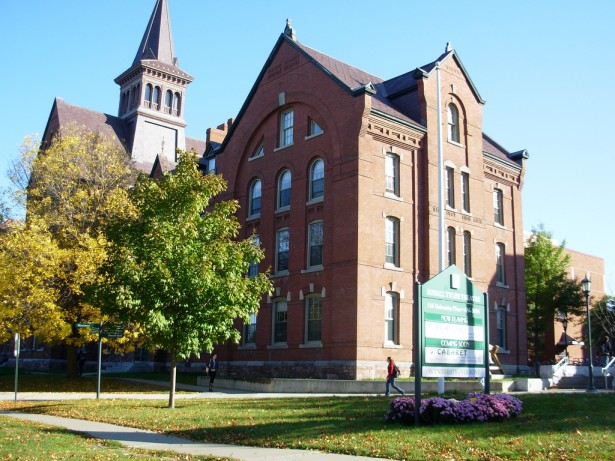 Photo: toddmundt4. University of Vermont, Burlington
Photo: toddmundt4. University of Vermont, Burlington
With its Rubenstein School of Environment and Natural Resources, biodiesel buses, green buildings, and the eco-awareness of the student body and populace of Burlington, UVM consistently makes lists of green schools.
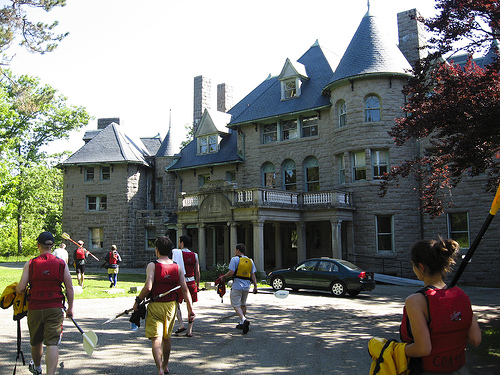 5. College of the Atlantic, Bar Harbor, Maine*
5. College of the Atlantic, Bar Harbor, Maine*
Over 90 percent of this campus’s lighting comes in the form of compact fluorescents, and a new wood-pellet furnace heats 20 percent of the school. Students design their own majors and all graduate with a B.A. in Human Ecology. The school has been carbon neutral since 2007.
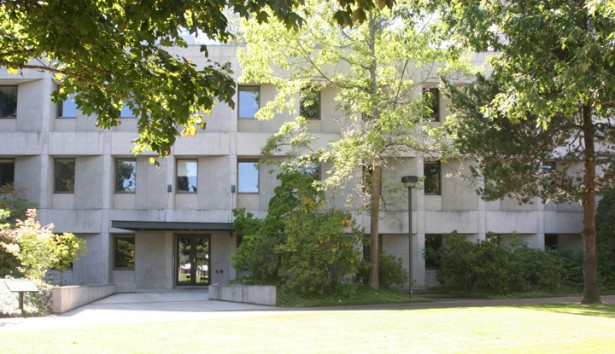 Photo: lil_azorean6. Evergreen State College, Olympia, Wash.*
Photo: lil_azorean6. Evergreen State College, Olympia, Wash.*
The college purchased a fleet of electric vehicles and runs a sustainably managed farm where it teaches courses in organic agriculture. With the help of students’ self-imposed clean-energy fee, Evergreen is on its way to meeting its goals of being waste-free and carbon neutral by 2020.
 7. University of California, Santa Cruz
7. University of California, Santa Cruz
One of eight UC schools that are part of the California Climate Action Registry, which tracks greenhouse-gas emissions, UCSC has a student-created fund for buying renewable energy credits, and is home to the Center for Agroecology and Sustainable Food Systems.
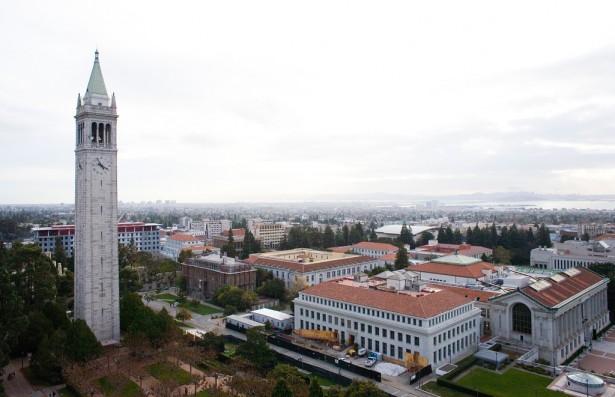 Photo: Thomas Hawk8. University of California, Berkeley*
Photo: Thomas Hawk8. University of California, Berkeley*
Cal has pledged to return its greenhouse-gas emissions to 1990 levels by 2014, six years earlier than the rest of the state, and its primary food service provider was first in the country to be organically certified.
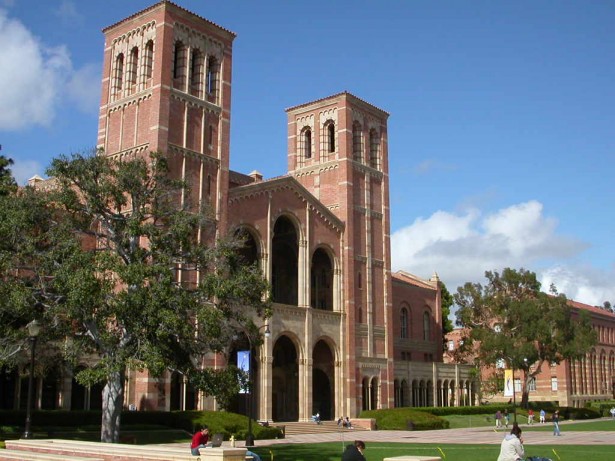 Photo: _Gene_9. University of California, Los Angeles
Photo: _Gene_9. University of California, Los Angeles
UCLA wins for waste management, recycling the hell out of just about anything on campus that can be recycled (construction materials, cafeteria food waste, leftover lab water, etc.). Many of its dorms have solar-heated water.
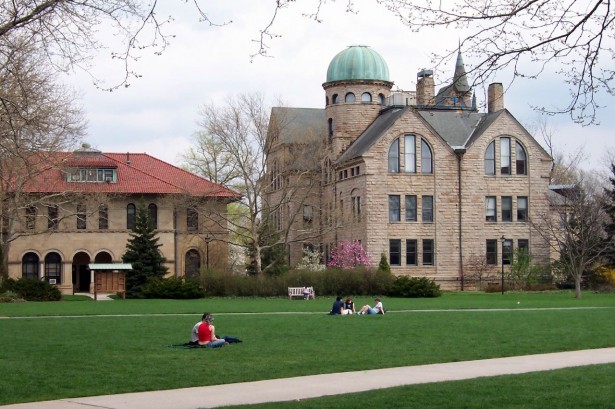 Photo: baslow10. Oberlin College, Ohio
Photo: baslow10. Oberlin College, Ohio
Oberlin has been greening its commencement year by year, offering hybrid vehicles to rent and serving local and organic food. It has a Bike Co-op, a solar parking pavilion, and hosts the Ecolympics, a four-week series of environmentally themed contests between dorms.
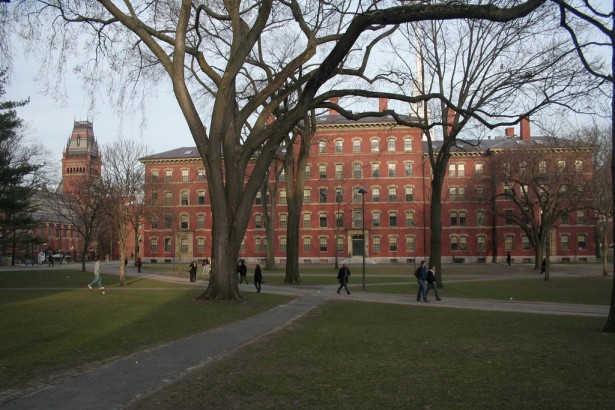 Photo: mathoov11. Harvard University, Cambridge, Mass.*
Photo: mathoov11. Harvard University, Cambridge, Mass.*
Harvard leads the way in resource conservation, with its collection of CFLs, solar panels, and 17 LEED-certified buildings, not to mention moisture-sensitive sprinklers on the famous Yard.
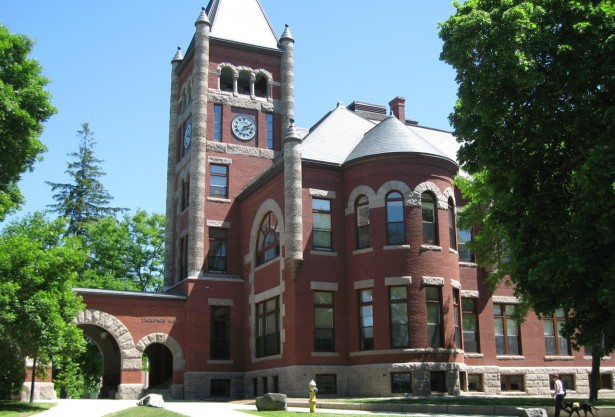 12. University of New Hampshire, Durham*
12. University of New Hampshire, Durham*
This school, which held a sustainable commencement in 2009, gets most of its energy from landfill gas, and with an organic dairy research farm and a new double major in EcoGastronomy, it leads the way in focusing on sustainable agriculture and food practices.
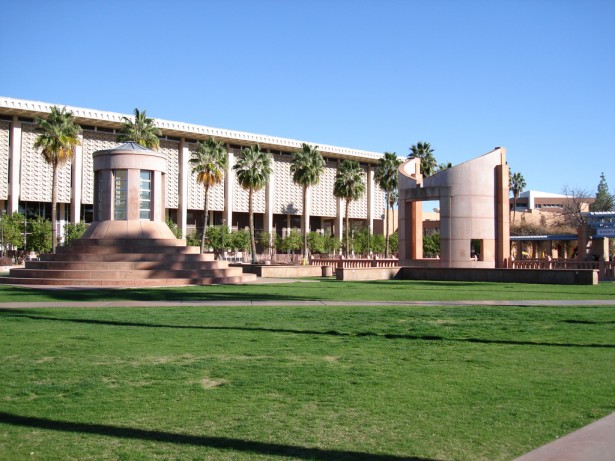 Photo: midiman13. Arizona State University, Tempe*
Photo: midiman13. Arizona State University, Tempe*
ASU’s biggest claim to green fame is its School of Sustainability, established in 2007, which offers interdisciplinary eco-related degree programs. The university has more solar panels than any other college campus in the U.S., and its president Michael Crow co-chairs the American College and University Presidents’ Climate Commitment. ASU has also teamed up with Grist to send local and national sustainability news to its whole student body–and we all know that working with Grist earns you the greatest green kudos!
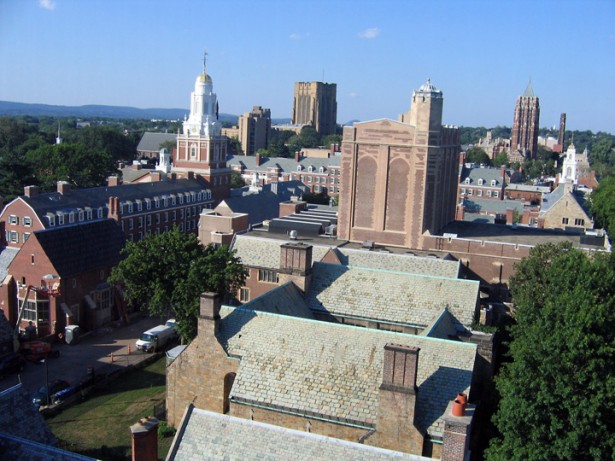 Photo: interrupt14. Yale University, New Haven, Conn.*
Photo: interrupt14. Yale University, New Haven, Conn.*
Almost half of the food in Yale’s dining halls is local, seasonal, or organic, thanks in part to the school’s one-acre market garden. The school is a leader in environmental and climate research.
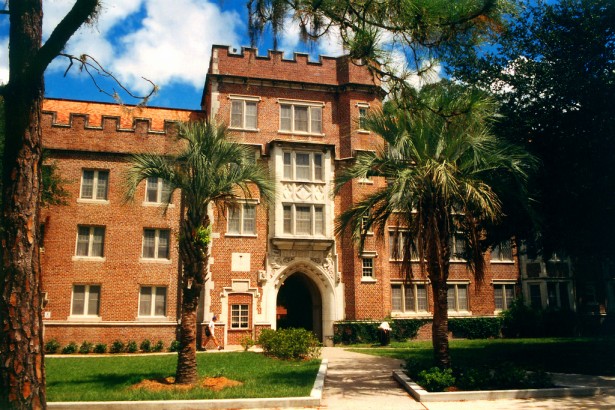 Photo: StevenM_6115. University of Florida, Gainesville
Photo: StevenM_6115. University of Florida, Gainesville
A new addition to the Gator football complex is certified LEED Platinum–the first athletic building in the U.S. to take that distinction–and it plans to host the first carbon-neutral home football season this year. The school aims to be waste-free by 2015.
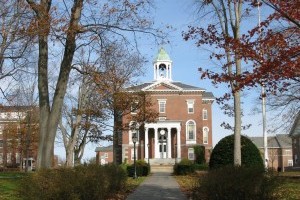 Photo: davidgalestudios16. Bates College, Lewiston, Maine*
Photo: davidgalestudios16. Bates College, Lewiston, Maine*
Bates does a good job of favoring local food, diverting food waste, and using renewable energy, and offers Prius rentals to its eco-savvy student body.
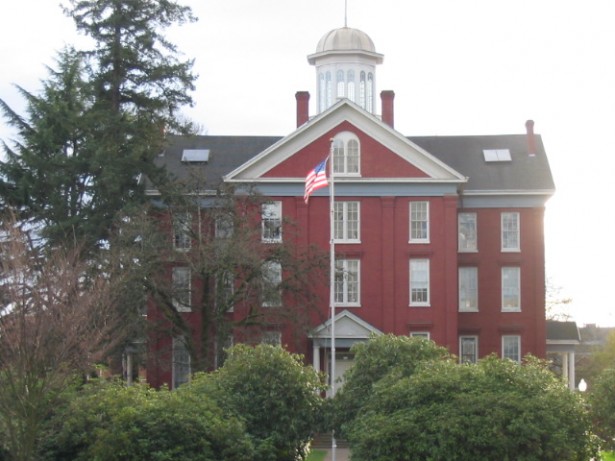 Photo: Jason McHuff17. Willamette University, Salem, Ore.
Photo: Jason McHuff17. Willamette University, Salem, Ore.
“The first university in the West” adopted strong green purchasing policies, has a new LEED Gold residence hall, and composts 50 percent of its food waste. Its Center for Sustainable Communities hires students to lead selected sustainability projects, and the National Wildlife Federation deemed it first in the nation for “sustainability activities.”
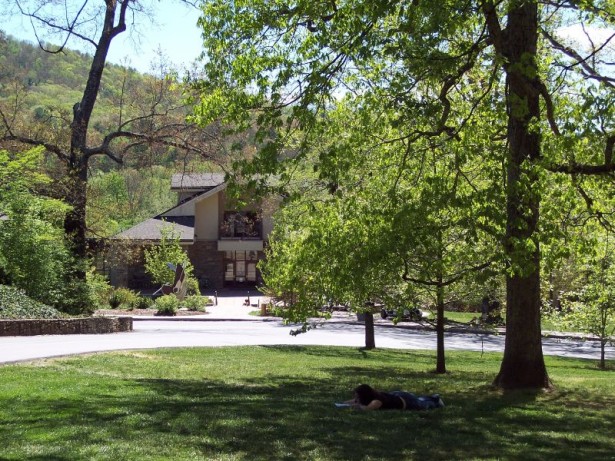 Photo: blueathena718. Warren Wilson College, Asheville, N. Carolina
Photo: blueathena718. Warren Wilson College, Asheville, N. Carolina
This tiny college is big on waste management, composting all food waste from its dining halls and receiving the Outstanding College Recycling Award from the Carolina Recycling Association.
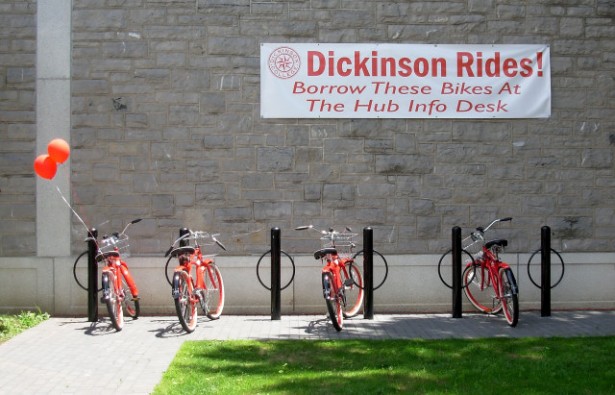 Photo: oppositeofsuper19. Dickinson College, Carlisle, Penn.*
Photo: oppositeofsuper19. Dickinson College, Carlisle, Penn.*
Dickinson has committed that all new buildings will meet at least a LEED Silver certification. The college also has a Center for Environmental and Sustainability Education and an organic farm, and has eliminated Styrofoam from its dining services.
 Photo: wallyg20. New York University
Photo: wallyg20. New York University
This large university buys enough renewable-energy credits to offset all of its electricity use, and for a while was the top campus purchaser of green energy, according to the EPA. It requires new construction and renovations to meet LEED Silver standards (all the cool schools are doing it!), and doesn’t let the big city stand in the way of offering local, organic food in dining halls.

